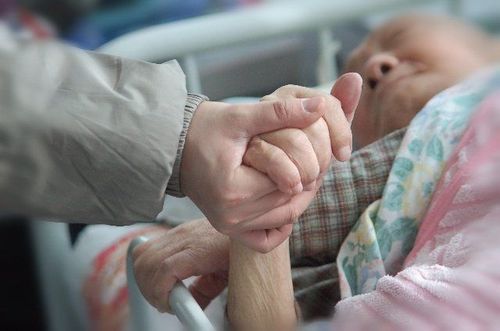This is an automatically translated article.
The article was professionally consulted by specialist doctor I Nguyen Thi Phi Yen - Head of Palliative Care Unit - Internal Oncology Department - Vinmec Times City International HospitalPalliative care in cancer treatment as an additional measure to support patients at any stage of cancer. So when is it best to start palliative care in cancer treatment?
1. When to apply palliative care to cancer patients
From diagnosis: applying Palliative Care from the beginning, helping patients access and plan as early and clearly as possible in cancer treatment and continue through all stages disease, not only in the late stages of the disease. Conducting Palliative Care during specific treatment (surgery, chemotherapy, radiotherapy, immunotherapy...) helps to reduce symptoms and side effects, promote compliance, and improve effectiveness. treatment results. Applied especially for cases of poor specific treatment, ineffectiveness, and chronic comorbidities such as: end-stage heart failure, end-stage renal failure, chronic obstructive pulmonary disease. The last stage... When combining cancer treatment measures with palliative care, it helps to increase the quality of life for both patients and their loved ones and caregivers. Palliative care for cancer patients can be done in the hospital, at home, and in the community. Caring for cancer patients at home is monitored on an outpatient basis by a routine palliative care family nurse-physician team. This improves quality of life and improves adherence to treatment. Palliative care for cancer patients contributes to raising the level of medical services to a higher, more humane nature. Palliative care is provided directly and regularly by a team of family doctors and nurses.

Khi nào nên áp dụng chăm sóc giảm nhẹ cho bệnh nhân ung thư
2. Who provides palliative care for cancer patients
New members of the palliative care team may include:2.1 Palliative care nursing physicians Nursing physicians caring for cancer patients provide general care, help you manage pain and other symptoms. They are often the primary point of contact for other members of the palliative care team and with other health care workers including oncologists. If you get palliative care at home, nurses will visit you regularly to make sure you get the care you need.
2.2 Social workers These staff counsel patients and families, help with financial problems, find transportation, arrange family meetings, connect with patients individuals and families with local resources. They also help patients discharge home and find help at home or find a place to care for terminal cancer patients when needed.
2.3 Pain Interventional Physicians Pain specialists are doctors who are good at finding the cause of pain and know how to treat it. They can work with the oncologist and the palliative care team to prescribe medication, recommend a rehabilitation program, and/or perform pain-relieving procedures. In many cases, the palliative care physician is also an expert in pain management.
2.4 Spiritual support person (Patriarch/Monk) The pastor/priest can help listen and approach the concerns of relatives and cancer patients about faith and spirituality, especially in cases of terminal cancer patient dying.

Cha xứ/Thầy tu có thể giúp lắng nghe và tiếp cận những băn khoăn của người thân và bệnh nhân ung thư về đức tin và tâm linh
2.6 Physiotherapists and Occupational Therapists Physiotherapists will help patients stay active and improve mobility. The physiotherapist can also devise an exercise program to maintain or improve fitness during and after treatment. Occupational therapists focus primarily on daily tasks and activities, especially upper body movements, helping the patient to be as independent as possible.
2.7 Family members Sometimes it is the family members who play an important role in encouraging and improving the spirit of cancer patients, helping them forget the pain, overcome all difficulties, more Life force for cancer patients.
3. Address to care for cancer patients
Palliative care unit, Internal Oncology Department, Center for Oncology - Radiation Therapy, Vinmec Times City International Hospital is one of the reliable facilities in treatment and palliative care for cancer patients. letters. With a team of doctors and nurses who are experts with extensive experience in the treatment and palliative care for cancer patients, it will help the life of terminal cancer patients become lighter and more meaningful.

Bác sĩ CKI Nguyễn Thị Phi Yến đang chăm sóc cho bệnh nhân
To learn more about the Palliative Care Program for Cancer Patients, you can contact: Doctor Nguyen Thi Phi Yen, Oncology Department, Vinmec Times City International Hospital, Tel: 0904164646 or post Register online HERE.














